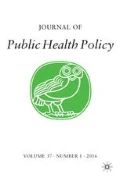Response to Katzmarzyk and Church
Dear Editors,
We welcome the response of Drs. Katzmarzyk and Church, the PIs of the Coca-Cola-funded ISCOLE study, to our paper investigating the ongoing correspondence between them and Coca-Cola employees. We especially welcome the additional information in their letter and their acknowledgement that at least one aspect of the study planning was discussed with Coca-Cola. As we note in our paper, we could only seek evidence of intent to influence, and not actual influence, and must accept that their statement that “TCCC [The Coca-Cola Company] did not have any role and did not exert any influence …” represents their sincerely held view. However, it should be recalled that we focussed not on ‘hard’ but on ‘soft’ power, where a recipient of funds seeks to please the funder. In this respect, it is difficult to interpret the quotation “It is very important to me to have a plan that TCCC is happy with moving forward” otherwise.
We also note the authors’ point that there exist examples of zero influence in their exchanges with Coca-Cola and their question as to why we did not cite them. For the purposes of testing our hypothesis, it was sufficient solely to determine whether there were examples suggesting potential influence. Hence, the negative examples are not relevant to our research question.
We cannot ascertain whether the study results themselves were biased in one small case study and nor did we claim to. Quantifying the degree of any influence by Coca-Cola is a different research question and one that is impossible to address with publicly available information. Future research could potentially employ meta-analytic methods to assess whether explanatory variables were omitted (such as dietary choices) and/or whether the magnitude and direction of associations (or lack thereof) observed differ from other, non-Coca-Cola-funded studies of children’s obesity.
For these reasons, we intentionally eschew making a value judgment on the authors’ COI statement and we applaud the positive steps the authors have taken to be transparent in publishing research in open access journals and making available data algorithms and methods. The correspondence we reported showed that the study investigators were themselves concerned that this study should be viewed as being above suspicion. Given this concern, in light of the correspondence we reported between the investigators and the company, we wonder whether the authors might consider if it is still appropriate to write that “The funder had no role in the design and conduct of the study” in their COI statement.
Author information
Authors and Affiliations
Corresponding author
Rights and permissions
About this article
Cite this article
Stuckler, D., Ruskin, G. & McKee, M. Letter to the editors. J Public Health Pol 39, 258–259 (2018). https://doi.org/10.1057/s41271-018-0119-y
Published:
Issue Date:
DOI: https://doi.org/10.1057/s41271-018-0119-y

